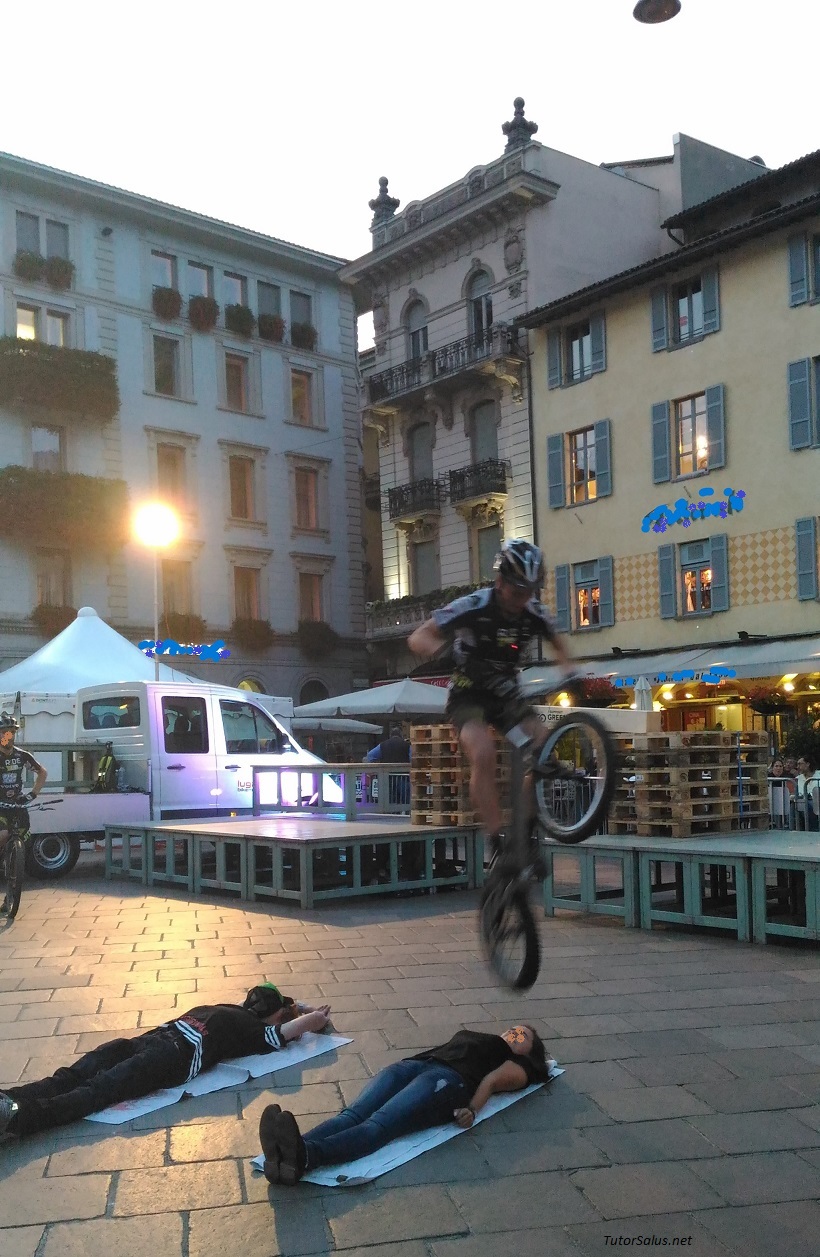Conscious.

<An authorized performance in a not European square>
How do they get to the option of a ‘social standard’ to assent which silence is enough? Can we talk about a ‘society’ default ? With which prototypes and reference models ? Introduced and spread, how ?
“The system 1 is wonderful in a particular specialty : it automatically and effortlessly identifies the causal connections between events, sometimes even when the connection is spurious.”[1]
It’s difficult to acknowledge ‘automatism’ when the goal is individual, as it is in every human act : more understandable is to acknowledge an individual direction, which may be also very very fast – as it is in any intuitive synthesis which captures what is already within one’s mind – in coordinating and leading to their own goal a number of conscious and unconscious representations, and whose multiple capacity to spend itself maybe has already been experienced.
We’re interested then in what Kahneman[2] states, because his underlining “even when the connection is spurious” indicates that there’s some thinking able to start ‘non causal connections’ for one’s own intellective synthesis, and with a level of effectiveness that can be well assessed by the subject : and more, we’re interested in that ‘non causal’ because it directly and exclusively addresses to the subject of direction, without almost referring to one’s own ‘conscience’, which first of all checks – we know that – the access in social life.
Kahneman’ statement, while aknowledges and keeps only ‘the non spurious connections’, also points out the existence of a remnant of thinking which, even if latent to awareness, however is not absent because can stop that specific frame, escaped from the conscience, which opens to consider the construction of a crossroads not existing before.
Here it is that latency-not-absence interrogates and questions again the distinction – not at all granted, but to a great extent by now used as a reference of social life too – between a ‘mnemonic self’ and an ‘experiential self’[3], opening then to the comprehension of why no memories are automatic, ever.
Marina Bilotta Membretti / Cernusco sul Naviglio – November 26, 2022
[1] ‘Pensieri lenti e veloci’ (orig.: ‘Thinking, Fast and Slow’), D. Kahneman (2011), Arnoldo Mondadori Editore SpA, p.146
[2] Daniel Kahneman (Tel Aviv, 1934) is a psychologist and professor emeritus at Princeton University, has been studying for years the decision-making processes together with Amos Tversky. In 2002 he was awarded the Nobel Prize for Economics because he integrated the results of psychological research into the economic science, with special regard to the human judgement and to the theory of decisions in conditions of uncertainty.
[3] ‘Pensieri lenti e veloci’ (orig.: ‘Thinking, Fast and Slow’), D. Kahneman (2011), Arnoldo Mondadori Editore SpA, p.508





